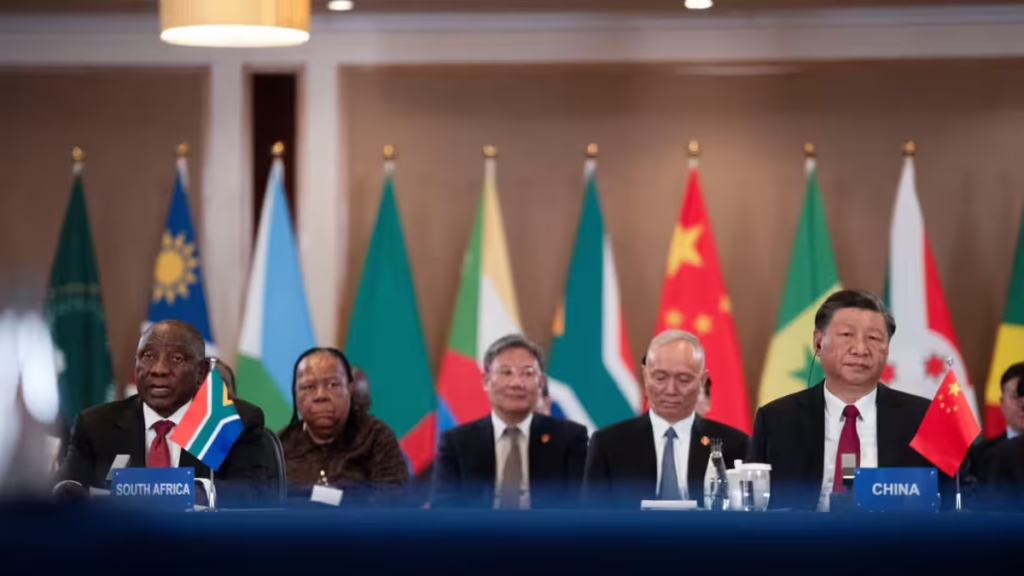
China’s Current Situation
In the second quarter of 2024, China’s economy had slowed down to a 4.7% growth, a slightly lower figure than their growth of 5.3% in the first quarter. In fact, China’s economy has been gradually slowing down even before the Covid Pandemic had dealt a heavy blow to the worldwide economy.
The post-Covid world has been ridden with economic difficulties and hyperinflation in large parts of the world. China has been one of the largest exceptions of this trend, being the first G20 country to report deflation post-pandemic.
This deflation had come as a consequence of lukewarm economic activity from the domestic market. The low economic activity in China can be attributed to a lack of confidence in the Chinese market as well as a wariness about the future conditions of the economy.
The ailing Chinese market is aided by the government “cracking down” on the economic elites in an attempt to create a larger middle class and close the gap between the uber-wealthy in China. This ruthlessness, accompanied with China’s harsh zero-covid rule, has caused many wealthy citizens to leave the country and move their businesses elsewhere.
Moreover, the real estate sector, making up 30% of the Chinese economy, has also been facing problems. As stated,citizens have been wary of buying anything in pessimism of the upcoming economic troubles, which extends to making investments in real estate. This is also exacerbated by the instability of many real estate companies, most notably Evergrande, who filed for bankruptcy last year.
Investments in Africa
Africa is currently the fastest urbanizing region in the world, and the world’s second fastest growing region, as reported by IMF. Major contributions to this growth stem from heavy foreign aid and investment. In the last 20 years. China has become Africa’s largest individual country trading partner, with investments near those of the entire Euro Area block. About 20% of Africa’s exports go to China and 16% of African imports come from China. Three fifths of Africa’s imports to China are composed of metals, mineral products, and fuel, and most Chinese imports include manufactured goods, electronics and machinery.
Graph depicting shares of African exports and imports between countries from 2000-2022, Credit: IMF
What Does This Mean For The African Economy?
China’s declining economic growth has already been felt in the earlier years during Covid. In 2016, China’s loan commitment towards Africa was $28.5 billion. In 2022, this number decreased to $995.5 million. Likewise, China had pledged $60 billion in financial commitment towards Africa in 2016, with this number decreasing to $40 billion in 2021.
The IMF stated that every 1 percentage point decline in China’s real GDP growth rate leads to about a 0.25 percentage point decline in sub-Saharan Africa’s total GDP growth within a year. The ratio between the decrease in GDP of China and the African continent shows how greatly this one country affects the entire continent.
Africa has a heavy reliance on Chinese services and businesses in the continent. For example, Africa is now the largest market for Chinese overseas construction contracts, with the gross annual revenue in 2021 totaling $37 billion, a slight decrease from post- Covid years. In addition, the value of Chinese businesses in the region are $2 trillion, with the main investments being directed towards construction, mining, and manufacturing.
Though the deflation and slowing economy in China may seem concerning, it is natural that a “miracle” such as the Chinese economic boom must eventually slow down. It is predicted that by 2029, the Chinese economy will decelerate to a 3.3% growth. In 2017, President Xi Jinping claimed that China would be transitioning from a period of high speed economic growth to a period of quality economic growth. Industries that would help propagate this growth are; AI systems, semiconductors and renewables energies. China must also maintain the efficiency of its supply chains and continue to provide access to global markets.
With China’s slowing economy, it is likely that they will prioritize developing their own economy before investing in other regions, especially with their focus on quality economic growth. However, this does not mean that China will cease investments in Africa. The resources exported to China are extremely valuable in the development of technology, namely metals, mineral products, and fuel.
With less investments in Africa going forward, they may have to turn to other regions and countries for investments. As China still relies on resources exported from Africa, they will likely continue to have a trading relationship as well as continued investment into sectors of interest. Furthermore, with China’s current domestic economic situation, they may push more products to international markets at cheaper prices, which provides Africa with cheaper products. Though these reduced prices are definitely a major benefit, it may cause these Chinese imports to outcompete domestic products, creating a heavier reliance on external regions.
In the short term, both China and Africa continue to benefit from their trading relationship. Africa relies on Chinese manufactured goods, as well as construction to urbanize the continent. China also relies on the natural resources imported from Africa that are crucial in the technological development of China. While both regions seem to benefit from this relationship, it seems that China enjoys more benefits. While the goods Africa exports are crucial to Chinese development, many products currently exported to Africa are a result of surplus as a result of their slowing economy and lack of demand in the domestic market.
Written by Vi Lam Dinh


